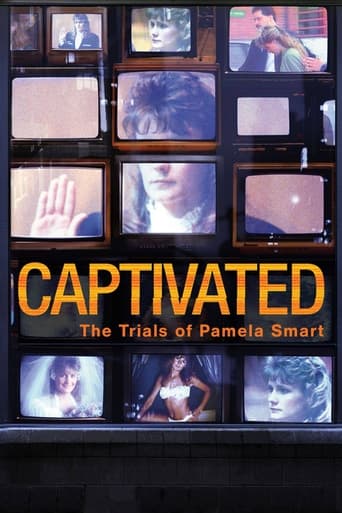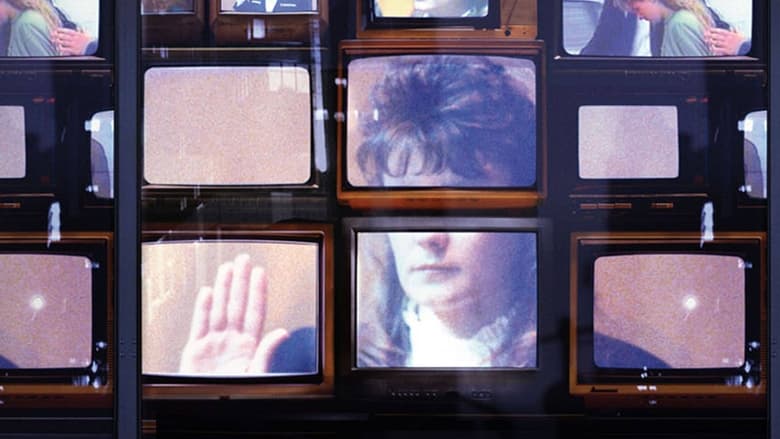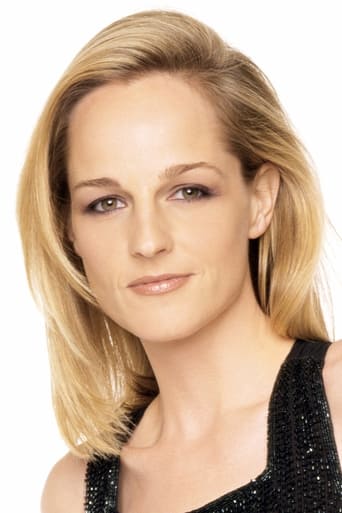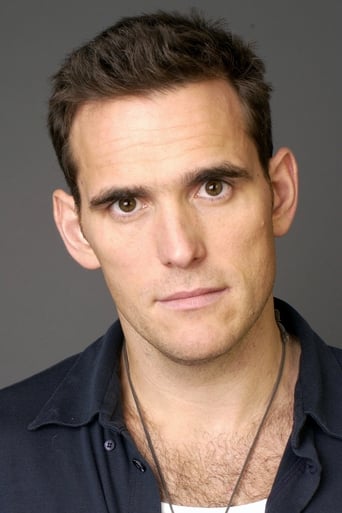Captivated: The Trials of Pamela Smart (2014)
In an extraordinary and tragic American story, a small town murder becomes one of the highest profile cases of all time. From its historic role as the first televised trial to the many books and movies made about it, the film looks at the media’s enduring impact on the case.
Watch Trailer
Cast
Reviews
Don't Believe the Hype
Good films always raise compelling questions, whether the format is fiction or documentary fact.
It's an amazing and heartbreaking story.
This is a small, humorous movie in some ways, but it has a huge heart. What a nice experience.
Jeremiah Zagar's HBO documentary tells the story of the high-profile New Hampshire trial and conviction of Pamela Smart, the accused murderer of Gregg Smart (her husband) in 1990. The film is packed with interviews—which includes: Smart herself, family, friends, accused conspirators, authors, reporters, and others—and does a pretty good job of letting the viewer choose who to believe. Right from the get-go, the film's main interest is how the notorious media coverage may have interfered with Smart's right to a fair trial, and Zagar not only never lets up but actually keeps pushing the issue harder and harder as the film progresses, making itself as sensationalistic as the subjects it's criticizing. Still, very intriguing and quite education for those who were not around or do not remember the hype of it all in the early-'90s.*** (out of four)
So, I was really looking forward to the release of this documentary because I wanted to look for another perception of the story. I honestly wanted to be convinced that the producers something that would make one reconsider the verdict against her, and unfortunately, I did not. The story was interesting in that it added some critique about some of the movies that were made about this case and also some insight into the investigation. There was nothing there, though, that made a person seriously consider a miscarriage of justice. It may seem unfair that the people that actually committed the murder are being offered a parole date but as the case stands, Greg Smart was not the only victim of this case. The students that Pamela engaged in her scheme were also victims of her. In particularly, Billy Flynn, who was responding and acting within the context of a situation that he never should have been put into in the first place.
This is an oddly structured documentary.The first quarter seems to assume that everybody knows the case and remembers the basic details. It's as if the filmmakers (who apparently spent years on getting this made) forgot who their audience was. Or, they thought it was still the year 2000! Some of the viewers weren't even born when this happened and many many others were too young. Further, this happened almost a quarter century ago, and yet, even the basic facts are barely analyzed in that first section of the movie.Yes, the filmmakers are trying to concoct their own counter-theory that the trial, testimony and public perception were all 'tainted' by the media, but, you need the context in order to test that theory. Fortunately, the rest of the movie does fill in many of the details, but you can't help but criticize the structure of the piece. Of course, an even BIGGER problem is that Pamela Smart (and by implication, the filmmakers who seem stacked in favor of her) seemed to rest their 'hopes' on Raymond Fowler testifying after his release that he would exonerate her. When he doesn't the filmmakers pull out their handy counter-theory and seem to indicate that Fowler can't remember what really happened, instead he is regurgitating what is shown in the TV movie.There are some stylistic flourishes like the clips on old TVs and the whole 'Theater' wraparound. But, these are just standard devices and don't really make the movie any more cinematic (and, if the whole theory is about the populace being influenced by what was shown on TV - why is the wraparound in a THEATER?? Shouldn't it be a gathering around a TV set?) Ironically, the best take on media manipulation in the Smart case remains the movie TO DIE FOR - an almost wholly fictionalized version!
If you liked Errol Morris' "The Thin Blue Line", you'll like Jeremiah Zagof's "Captivated." It's not as neatly organized, nor as convincing, but it's intelligent and it will involve all of your mental faculties that yearn to make judgments.In the early 90s, a pretty young woman named Pamela Smart was convicted of enlisting the help of a couple of fifteen-year-old kids in helping to murder her husband. She was sentenced to life without. The kids plea bargained their way out after confessing that they'd shot the husband. Two of the four are out already, two are eligible next year.It was described by some as another "trial of the century" and turned into a media frenzy. According to this documentary, no one who was awake at all could have escaped the progress of the trial. I must have slept through the 90s but I'm persuaded that the case did get a great deal of media attention. There were two movies made about it. A docudrama called "Murder in New Hampshire," with Helen Hunt as the vamp, and a fictionalized version, "To Die For," with Nicole Kidman, who looks absolutely exquisite and delivers what may be her best performance. But just because we see events through selective captures doesn't necessarily establish the truth value of the events.Pamela Smart has been doing her time in a facility in New York state, where the other inmates brutalized her and the corrections officers raped her and forced her to pose for salacious photos, which they then sold to tabloid newspapers -- or so she and some fellow inmates claim.The simple fact is that practically no one in this film can be trusted to tell the truth, partly because of the media. An example: The judge in the case refused to permit a change of venue, although if ever one were needed it would seem to be here. Why did he refuse? It was a high-profile case and when they wrote the books and made the movies about it, he would be a MOVIE STAR. (He suggested he be played by Gregory Peck.) Everybody involved in the case would be a celebrity, one way or another. The lies and distortions abound. People contradict their earlier statements, deny their own actions, and describe others as different from the people we see in the film. Pamela Smart, now a flinty looking blond in her forties, sees herself as having been demure and puzzled, as well as innocent. But there's a clip of her in the courtroom. The victim's father is speaking his piece after the verdict, sobbing as he reads his notes, and she leaps to her feet and begins shouting viciously back at him.The difference between "Captivated" and "The Thin Blue Line" isn't just in the level of expertise shown in the editing, or the fact that "Blue Line" led eventually to the release of Randall Adams, who had been convicted of murdering a patrolman. "Captivated" is less interested in the details of the murder than in the media blitz surrounding the trial. No celebrity attended Randall Adams when he was railroaded, but the Pamela Smart case had sex in it, and a deviant kind of sex, a 22-year-old pretty woman and a couple of horny but stupid high schoolers. The public evidently salivated over the spectacle. Smart was beautiful, sexy, and popular -- enough in itself to make many other women hate her and envy her. The male spectators probably envied the kids. The main theme is laudable. Not "she's innocent" but "the media contaminates what it examines." Every high-profile case is like carrying out a serious operation before the germ theory was accepted. You know, unwashed bare hands that five minutes earlier were dissecting a corpse? The problem is that the film doesn't have a real narrative trajectory. There are plenty of talking heads -- some of them making sense, others making fools of themselves -- and many of the points hit the target. What normal man WOULDN'T want to be played by Gregory Peck? The director is rather too obviously trying to convince us that Pamela Smart had nothing to do with the murder. I was persuaded that the jury, the witnesses, the talking heads, and the public at large, were made up of ordinary, flawed human beings, and that justice in this case is a matter of probabilities, as it usually is. He'd been better off to applying the Heisenberg principle to the new coverage in the courtroom: You can't poke a camera into an event without having the participants react to the camera. Technically, Zagar borrows a lot from "The Thin Blue Line" but renders it a bit more flashy. Multiple shots of a small tape recorder playing, while we listen to a recorded statement, only this time, instead of one magnetic, static image, the camera slowly circles the indifferent recorder. The minimalist musical score could have been written by my main man, Phillip Glass, described as "doodle doodle doodle".I have to hand it to HBO, though, for undertaking some tough jobs in making these specials. One of the oases of taste and ambition in the Sahara desert that is television.





